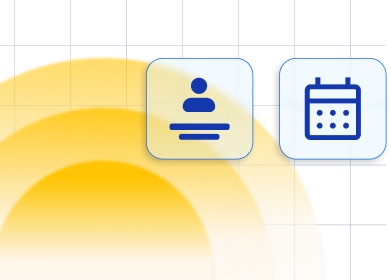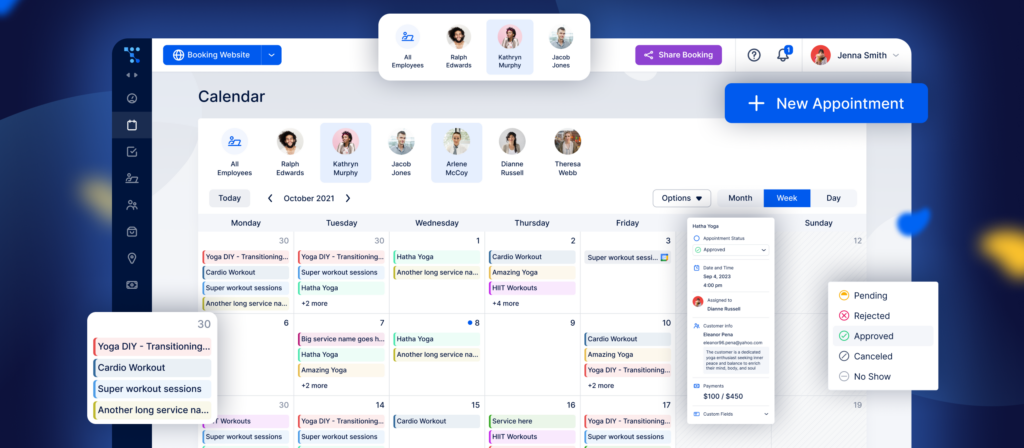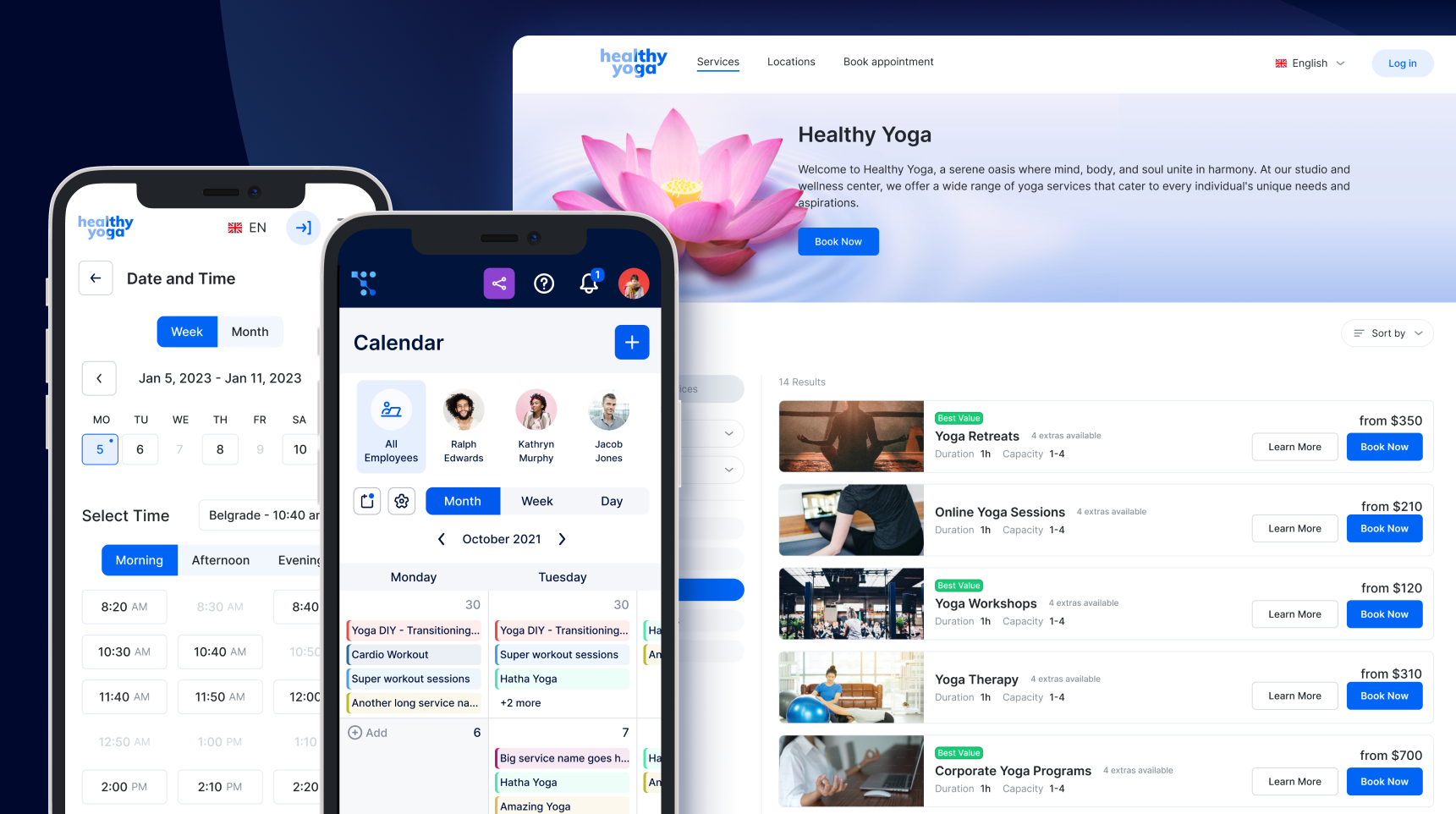Google “life coaching services” and the search engine throws more than one million results at you.
As a life coach, you may be left wondering, how can people hear me above all the noise in a growing industry full of potential? You need to focus and amplify your life coaching business by directing your skill set and knowledge toward a specific type of life coaching. Identifying the right one for you is like stumbling across the spot marked X on a treasure map.
When deciding on the right type of life coaching business, consider your field of experience and knowledge and combine it with what you’re passionate about.
Take some inspiration from the types of life coaching we’ve listed below. As you read through it, consider where your experience and passions as a life coach are most relevant.
Why You Need to Choose a Type of Life Coaching
Choosing a specific type of life coaching is crucial for several reasons.
Firstly, different types of life coaching focus on specific areas such as career, relationships, health, or personal development. By choosing a type, you can specialize and develop expertise in that particular area, making you more effective in helping your clients.
Also, when clients are searching for a life coach, they often look for someone who specializes in the area they need help with. Having a clear focus helps you attract clients who are specifically seeking the expertise you offer, leading to more meaningful coaching relationships.
In addition, each type of life coaching appeals to a specific target audience with unique needs. Whether it’s executive coaching, wellness coaching, or relationship coaching, defining your niche allows you to tailor your services to a particular demographic.
Furthermore, specializing in a particular type of life coaching allows you to build credibility and become known as an expert in that field. This can lead to more referrals, partnerships, and speaking opportunities, enhancing your overall reputation in the coaching community.
Different coaching niches may require distinct coaching techniques and methodologies. By choosing a type of life coaching, you can refine and develop specific skills and approaches that are most effective in addressing the challenges relevant to that niche.
Finally, when you choose a type of life coaching that resonates with your values and personal interests, you are more likely to find fulfillment in your work. This can positively impact your coaching practice and contribute to your overall satisfaction as a coach.
Selecting a type of life coaching that aligns with your passion and skills is essential for sustained motivation and success. When you genuinely enjoy and excel in a specific area, your enthusiasm and competence will naturally shine through in your coaching sessions.
Overview of 27 Types of Life Coaching
A life coach is someone who aims to help people revamp and enhance their day-to-day living. The title ‘life coach’ is an all-encompassing category for a variety of outstanding life coaching specialties. There are different types of coaching, but there are also subcategories of life coaching.
Below are some types of life coaches that make use of similar skill sets.
- Accountability life coaching
- Business life coaching
- Small business life coaching
- Leadership executive life coaching
- Career coaching
- Productivity life coaching
- Work-life balance life coaching
- Team coaching
- Creativity coaching
- Financial coaches
- Christian life coaching
- Spiritual life coaching
- Mindfulness life coaching
- Family and relationships coaching
- Dating life coaching
- Sex coaching
- Parenting life coaching
- Divorce coaching
- Mid-life crisis coaching
- Personal development life coaching
- Empowerment coaching
- Health and wellness life coaching
- Fitness coaching
- Recovery coaching
- Conflict coaching
- Transitional coaching
- General life coaching
Let’s explore all these different types of life coaching and what makes them stand out. Who knows, maybe you’ll finally find your dream life coaching niche.
Accountability life coaching
If you appreciate the importance of structure and aim to get the job done, then accountability life coaching might just be for you. You would help people to reach and stick to their goals.
Your strengths should include being able to assist people to identify and conquer their limiting beliefs and overcome procrastination. If people are feeling overwhelmed, an accountability coach can encourage an increase in productivity. Whatever the target, accountability coaches help them to hit the bullseye.
The best fit to become an accountability life coach is someone who possesses a combination of empathy, communication skills, and a genuine desire to help others succeed.
A life coach must be a good listener, understanding the unique challenges and goals of their clients. Experience in goal setting, motivation techniques, and a positive mindset are also valuable traits.
Professional certifications or training in life coaching can enhance credibility. However, real-world experience and a track record of helping people achieve their goals can be just as important. Being adaptable and able to customize approaches based on individual needs is key.
If someone has a background in psychology, counseling, or a related field, it can provide additional insights into human behavior and effective coaching methods. Ultimately, the best accountability life coach is someone who genuinely cares about the well-being of their clients and is committed to guiding them toward success.
Business life coaching
A business coach provides the know-how and tools that an entrepreneur or company needs for peak performance. Business life coaches enable their clients to define their vision and mission. They ensure goals are clearly set and strategies are developed to accomplish their mission.
Business coaching is a worthwhile investment if you are looking to get involved in a money-making type of life coaching. You will need a good sense of entrepreneurship to work in this popular type of life coaching. And you will find that there is never a shortage of clients as a business coach.
The ideal candidate for this type of life coaching is someone with a combination of business acumen, coaching skills, and a deep understanding of personal development.
Having experience in the business world is essential. This could be in the form of entrepreneurship, corporate management, or a successful career in a specific industry. This background allows you to understand the challenges and dynamics of the business environment.
Other important skills are effective communication, active listening, and the ability to ask powerful questions. A good business life coach should be able to guide clients in setting and achieving professional goals, improving leadership skills, and navigating complex business situations.
However, understanding the emotional aspects of professional challenges is also crucial. A business life coach needs to be empathetic, helping clients manage stress, build resilience, and maintain a healthy work-life balance.
Small business coaching
Small business coaching concerns itself with the individual rather than the company. These types of life coaches face one-of-a-kind challenges as opposed to bigger companies that focus on company culture, operation, and productivity.
Self-starters are usually at the center of the many small businesses out there. You will often find that their professional lives converge with their personal life. This leads to health issues when, for example, problems arise with cash flow or specific business procedures. Or they could be dealing with emotional concerns that make it difficult to focus on the business. There is no doubt that personal issues can have a significant effect on the efficiency of a small business.
It is the objective of the small business coach to figure out the problem and find the solution. They not only assist with technical issues but also ensure the business owners don’t tire themselves out.
The best fit to become a small business coach is someone with a combination of business expertise, coaching skills, and a genuine passion for helping small business owners succeed.
A successful small business coach should also have hands-on experience in starting, running, or advising small businesses. This firsthand knowledge allows them to understand the unique challenges faced by small business owners.
Leadership executive coaching
Executive coaching implements and enhances leadership skills for top-level leaders (C-suite executives) in an organization. This type of life coaching teaches executives to have success in carrying out their corporate roles and positively influencing the company and its employees.
These life coaches also work on building a spirit of teamwork, introducing new ideas, and managing change within the company. Their clients learn how to improve work relations with others, motivating them to reach company and personal goals.
The best fit for becoming a leadership executive coach is an individual with a combination of leadership experience, coaching skills, and a deep understanding of organizational dynamics.
What do you need to become a leadership executive coach?
- Executive Leadership Experience: Successful leadership executive coaches often have significant experience in executive or leadership roles. This firsthand experience helps them understand the complexities and challenges that senior leaders face within organizations.
- Coaching Certification: While leadership experience is crucial, having formal coaching certifications or training is equally important. It provides coaches with the necessary skills and methodologies to effectively guide and support executives in their professional development.
- Active Listening and Communication Skills: Strong communication and listening skills are essential for an executive coach. They need to understand the goals, concerns, and aspirations of their executive clients to provide tailored guidance.
- Empathy and Emotional Intelligence: Executives often deal with high-pressure situations, and a coach with empathy and emotional intelligence can effectively support them in managing stress, building resilience, and fostering positive interpersonal relationships.
- Strategic Thinking: A leadership executive coach should be able to think strategically and help executives develop and implement strategic initiatives. This involves understanding business goals, market dynamics, and organizational culture.
- Problem-Solving Skills: Executives may encounter complex challenges, and a coach should be adept at helping them navigate and solve problems. This involves analyzing situations, identifying options, and supporting decision-making processes.
- Confidentiality and Trustworthiness: Executives often share sensitive information, and a coach must maintain the highest level of confidentiality and be perceived as trustworthy. This helps build a strong coach-client relationship based on trust.
- Continuous Learning: Staying informed about leadership trends, organizational development, and coaching methodologies is crucial. Continuous learning ensures that the coach can provide up-to-date and relevant guidance to executives.
- Flexibility and Adaptability: The business landscape is dynamic, and executive coaches need to be adaptable. Being flexible in their approach allows them to tailor coaching strategies to the unique needs and challenges of each executive client.
- Networking and Industry Knowledge: Having a network within the business and leadership community allows the coach to stay informed about industry trends, connect clients with relevant resources, and provide valuable insights.
- Results-Oriented Approach: Executive coaching often involves helping leaders achieve specific goals. A coach should have a results-oriented mindset, working collaboratively with executives to set and attain measurable objectives.
Career coaching
When clients are facing decisions such as career changes or retirement, a career coach assists clients in finding well-suited solutions. If you pursue this type of life coaching you can also help someone looking to progress in their chosen career or business.
Even if someone is struggling to utilize their talents and interests in the job market, a career coach helps them navigate those waters.
A good life coach in this niche gets their client that pay raise or dream job.
The best fit for this type of life coaching is a person with a deep understanding of career transitions, transferable skills, HR practices, and interviewing process, but also has strong interpersonal skills.
Productivity life coaching
Productivity coaching as a type of life coaching helps clients make the most out of every minute of the day.
Journals and planners are just some of the tools that productivity coaches use to help people make the best use of their time.
You should help the client manage time, procrastinate less, focus their energy, reduce stress related to deadlines, have better focus and clarity, and support them in realizing their productivity goals.
The best fit for becoming a productivity life coach is an individual with a passion for time management, organization, and helping others achieve their goals.
A background in coaching or productivity training, coupled with a genuine interest in personal development, can enhance a productivity coach’s ability to support clients in managing their time effectively, maintaining focus, and realizing their productivity goals.
Work-life balance coaching
Most people today are at risk of burnout, struggle to manage what little time they have, and are overworked. A work-life balance coach steps in to assist them in prioritizing what is most important and how to use the time they have to fully benefit themselves.
Their clients need a way of life that is healthy and sustainable. These types of life coaches offer practical advice, helping their clients to regain their professional and personal balance.
The best fit for becoming a work-life balance coach is an individual with a deep understanding of the challenges people face in demanding work environments. Ideal candidates possess empathy, excellent communication skills, and a passion for helping others prioritize and manage their time effectively.
Work-life balance coaches should have a holistic approach, offering practical advice to assist clients in regaining equilibrium between their professional and personal lives.
Team coaching
A strong sense of teamwork is a firm foundation on which a company lies; however, it doesn’t come naturally or easily.
To build a high-performance team, a team coach will determine the team’s purpose, help them set goals, define their roles and responsibilities, and resolve personality clashes that inevitably occur.
Effective team coaching boosts the company’s performance by guiding and mentoring the team.
Creativity coaching
Creativity coaches help their clients to understand and develop their creative thinking and skills. The process can involve noting your goals, learning to express emotion through art, and removing obstacles standing in the way of your creativity.
A creativity coach helps to turn a creative vision into reality.
Financial coaching
A financial coach aims to change their client’s views and habits in relation to money.
If you have a way with money, many out there could benefit from your practical advice. From saving for retirement or an emergency to paying off their debt, people need help in setting and sticking to their financial goals, and a life coach who knows how is in great demand.
Christian life coaching
Support from a fellow believer is invaluable to a person looking for guidance in their religious beliefs.
Life coaching in this area was developed to help people do God’s will and remain focused on their Christian life goals. Naturally, clients would want a life coach who shares similar beliefs.
Spiritual life coaching
If you are looking for meaning in your life or want to start on a spiritual journey, look no further than spiritual coaching.
A client might be seeking a connection with a higher power or need help following the various teachings or ideas of a particular belief system. A life coach promotes prayer or meditation techniques to facilitate this. A coach may focus on a particular religion such as Judaism, Buddhism, or others.
Free Booking Software for All Types of Life Coaches
Trafft stands out as the ultimate free booking software for life coaches, offering a tailored set of features to enhance your practice.
The customizable appointment types and scheduling options ensure that you can adapt the platform to unique coaching sessions, whether it’s career coaching, wellness coaching, or any specialized niche.
Trafft’s intuitive interface simplifies the booking process, allowing you to set availability and manage appointments effortlessly. The software’s flexibility accommodates the dynamic nature of coaching, making it easy for coaches to navigate the intricacies of client sessions.
Trafft’s key features
One standout feature is the ability to set up automated reminders, ensuring that both coaches and clients stay organized and prepared for upcoming sessions.
Trafft also provides a comprehensive overview of a coach’s schedule, allowing for better time management and resource allocation.
Moreover, Trafft’s customer and appointment notes system allows you to maintain detailed records, facilitating personalized interactions with clients.
The software’s user-friendly dashboard and reporting tools enable coaches to analyze their schedules, track occupancy, and make informed decisions to optimize and grow their coaching practice.
And with payment processing, marketing tools integrations, and video conferencing tools like Zoom, Google Meet, and MS Teams, you’ll hold life coaching sessions with ease.
Trafft not only simplifies the booking process but also empowers life coaches with features designed to enhance efficiency, organization, and overall client satisfaction. With Trafft, life coaches can focus more on what they do best—providing valuable guidance to their clients—while the software takes care of the logistics seamlessly.
Check out Trafft’s awesome features and a dedicated coaching demo to see Trafft in action.
And when you’re ready, sign up because it’s free forever and you can choose when to upgrade at your convenience.
Mindfulness coaching
A mindfulness coach will use breathing, mental exercises, and meditation techniques to help people reduce stress and anxiety, cope with depression, and become more self-aware.
These life coaches help their clients to pinpoint and overcome bumps on the road to well-being.
Family and relationship coaching
Sometimes communication between family members and couples can be difficult. A life coach who specializes in this field intervenes to help families navigate potential minefields.
A family coach can open up communication between family members and help with conflict resolution. Relationship coaching works with people who want to improve their chances of finding the right partner or understanding a history of failed relationships.
These types of life coaching niches are suited to empathetic people who like problem-solving.
Dating coaching
Dating coaches work along with their clients to help them clearly define their relationship goals, work through any issues, and address obstacles that have frustrated their dating efforts.
A dating coach takes on the role of a counselor, assisting the client in creating an effective action plan.
Sex coaching
A sex coach creates a comfortable space free from judgment where clients can talk about any concerns or stigmas related to sex.
From performance anxiety to healthy sexual expression to traumatic events, a sex coach will help clients work through such issues with care and knowledge (including anatomy and the science behind desire and satisfaction).
Parenting coaching
Parenthood is a complicated territory, and a life coach with the skills to help navigate through it successfully is invaluable.
They help both new and experienced parents to become the best parents they can by using their background knowledge and practical parenting techniques. The focus is firmly on the family as they help families who have relocated or who are looking to reconnect with siblings or other family members.
Divorce coaching
The role of a divorce coach is not to be confused with a divorce lawyer. This life coach supplies ongoing and compassionate support to those going through a divorce.
They help clients to make suitable choices and support the client to manage the pain of a divorce and moving on in their life.
Mid-life crisis coaching
Often the butt of many a joke, those that go through a mid-life crisis and their loved ones find it anything but funny. A mid-life crisis coach looks at the issues that led to the situation and helps their client to deal with them honestly.
Life coaching in this particular niche means making what would otherwise be a turbulent experience smooth. This often involves learning to deal with empty nest syndrome, changes in a relationship, changes in a career, dating after divorce, or the loss of a spouse in death.
Personal development coaching
Personal Development Coaching aims to build confidence and promote self-growth. A coach encourages a client to create self-awareness, set goals, and confront differing perspectives.
When a coach succeeds a person grows in their personal development by moving out of their comfort zone and breaking down barriers. When life gives us lemons, a personal development coach can help us turn them into the best lemonade by evolving the self in an ever-changing world.
Empowerment coaching
Most of us want to feel content, confident, and solid. We want to enforce healthy personal boundaries. Many life experiences can deal a powerful blow to our contentment and confidence, like abusive relationships, hostile family experiences, bullies, and narcissists, to name a few.
An empowerment coach’s purpose is to build up their client’s confidence. A coach helps clients by teaching them to establish boundaries, be confident in their skin, and create action plans to gain the love and respect they deserve.
To empower someone is to give them the power to take control of their own lives; that is exactly what this particular life coach sets out to do.
The perfect fit for becoming an empowerment coach is an individual with a strong commitment to helping others build confidence and regain control over their lives. An empowerment coach specializes in guiding clients through challenging life experiences, such as abusive relationships or hostile family dynamics, by teaching them to establish healthy boundaries, fostering self-confidence, and creating action plans for personal growth.
This type of life coaching role requires a compassionate and empowering approach to enable clients to reclaim their sense of self-worth and navigate life with resilience and strength.
Health and wellness coaching
A health coach helps their clients work through the challenges that prevent them from leading a healthier life. They provide guidance that enables clients to adopt healthier emotional and physical habits.
These life coaches provide necessary tips and motivation that encourage clients to lose weight, eat right, and get fit. At times, those involved in this coaching niche are certified trainers and nutritionists.
Although they are not a substitute for a qualified doctor, a health and wellness coach can help you work through such issues as overeating, poor nutrition, and yo-yo dieting.
The best fit for this type of life coaching is an individual with a strong background in health, nutrition, or fitness, complemented by excellent coaching skills. Health coaches guide clients through challenges, fostering healthier emotional and physical habits, and offering motivation for weight loss, proper nutrition, and fitness.
While not a substitute for medical professionals, certified trainers and nutritionists often thrive in this coaching niche, helping clients address issues such as overeating, poor nutrition, and yo-yo dieting through personalized support and guidance.
Fitness coaching
A fitness coach supports persons struggling with their weight and fitness goals. They work to boost their clients’ self-confidence and provide tools to build a healthy mind and body.
A life coach dedicated to fitness equips their clients with a specific set of skills that will enable them to adopt healthy habits.
The ideal candidate for becoming a fitness coach is someone with a passion for health and wellness, possessing the knowledge and skills to guide individuals toward achieving their weight and fitness goals. A fitness life coach should excel in building self-confidence, providing practical tools for a healthy mind and body, and motivating clients to adopt sustainable healthy habits for long-term well-being.
Recovery coaching
Life coaches within the specialty of recovery play a fundamental role in the lives of those fighting a battle with addiction.
Some may consider this an emotionally and mentally taxing niche in which to work, but it also happens to be one of the most personally rewarding.
A recovery coach equips their clients with healthy coping mechanisms as they try their best to live their lives free of addictive substances. This type of life coaching is for the thick-skinned and big-hearted.
You are a great fit for becoming a recovery coach if you have a resilient and compassionate nature, capable of providing crucial support to those battling addiction. This specialty requires emotional strength and a deep commitment to helping clients develop and maintain healthy coping mechanisms on their journey toward a life free from addictive substances. A successful recovery coach is someone with both resilience and empathy, making a significant positive impact on their clients’ lives.
Conflict coaching
A conflict coach uses the art of mediation and negotiation to help conflicting people or groups reach a resolution.
They can work with anyone, from corporations to couples, from small businesses to neighbors.
The perfect fit for becoming a conflict coach is an individual with excellent mediation and negotiation skills, coupled with a deep understanding of human dynamics. A conflict coach should have the ability to work effectively with diverse groups or individuals, ranging from corporate settings to personal relationships, to facilitate resolutions and foster better communication.
Transitional coaching
Life is full of considerable and momentous changes. People experience a variety of shifts, whether it be an emotional break-up, graduating from university, having kids, going through menopause, or a career change, and they can leave people feeling lost or unsure.
A transitional life coach helps their clients build coping mechanisms so that they can put these transitional events into perspective. They support them as they learn to calm their fears and find joy in life-changing events.
The ideal candidate to become a transitional life coach is someone with a strong foundation in coaching, empathy, and the ability to guide individuals through significant life changes. A transitional life coach should excel in helping clients develop coping mechanisms, navigate uncertainties, and discover joy amidst transitional events, offering valuable support during times of emotional upheaval and uncertainty.
General life coaching
Sometimes people are just looking for support and direction for life in general. They don’t have anything specific to fix or work on, but they need someone to guide them to make the most of life.
General life coaches are more than capable of assisting their clients in a variety of circumstances. They help clients stop self-destructive behaviors and create healthier habits. They help them transform into their most authentic and best selves.
The best fit to pursue this type of coaching is an individual with excellent communication and interpersonal skills, empathy, and a genuine passion for helping others lead fulfilling lives. This coach should possess the ability to guide clients in self-discovery, goal-setting, and making positive life changes, even in the absence of specific issues or challenges.
FAQs about Types of Life Coaching
1. What is the difference between a career coach and a life coach?
Whether it’s advancing within their present employment, making a career move, or starting their own business, a career coach is focused on assisting people in developing and achieving their career goals.
A life coach, on the other hand, offers direction and assistance in a broader sense, assisting people in bettering different facets of their lives, including their relationships, health, and general well-being.
2. What is the difference between a spiritual coach and a religious leader?
A spiritual coach focuses on assisting people in discovering their own special spiritual path and in developing a greater sense of purpose and meaning in their lives.
A religious leader may offer spiritual coaching based on the teachings of their religion. To assist people in connecting with their inner selves and achieving a higher feeling of spiritual fulfillment, they may adopt practices like meditation, mindfulness, and visualization.
3. What type of life coach is most in demand?
Career coaching and wellness coaching are currently in high demand, addressing individuals’ aspirations for professional growth and holistic well-being. Executive coaching is also popular, with leaders seeking guidance to enhance their leadership skills and navigate complex business challenges.
What Types of Life Coaching Are the Most Popular?
All types of life coaching are more popular than ever. Maybe it’s the complexity and business of life that brings people to their doors, but a life coach can achieve success if they know their niche inside out.
Career coaching, relationship coaching, business coaching, and health coaching are just some of the more popular types of life coaching. If you have the skills, passion, and knowledge for any one of those fields, then you will have no problem building a loyal clientele.
Life has its unique challenges. We know that the solution to those problems is not a one-size-fits-all scenario. It can get complicated trying to figure out which profitable coaching niche you would like to pursue. Consider what talents and skills feed your passions, and you will be able to set yourself apart in the world of life coaching.
Hungry for more?
We have just what you need! Dive into additional resources about life coaching and gain more knowledge:
- The Best Life Coaching Niches You Should Know About
- Transformational Life Coaching: How to Do It Right
- What Is a Holistic Life Coach and Why Is It Important to Know
- How To Create An Impressive Life Coach Mission Statement
- The Most Insightful Life Coaching Statistics You Need to Know
- The Best Life Coaching Quotes For You To Get Inspired From
- How to Get into Personality Coaching and Be Good at It
- Why Working With a Time Management Coach Isn’t a Bad Idea










